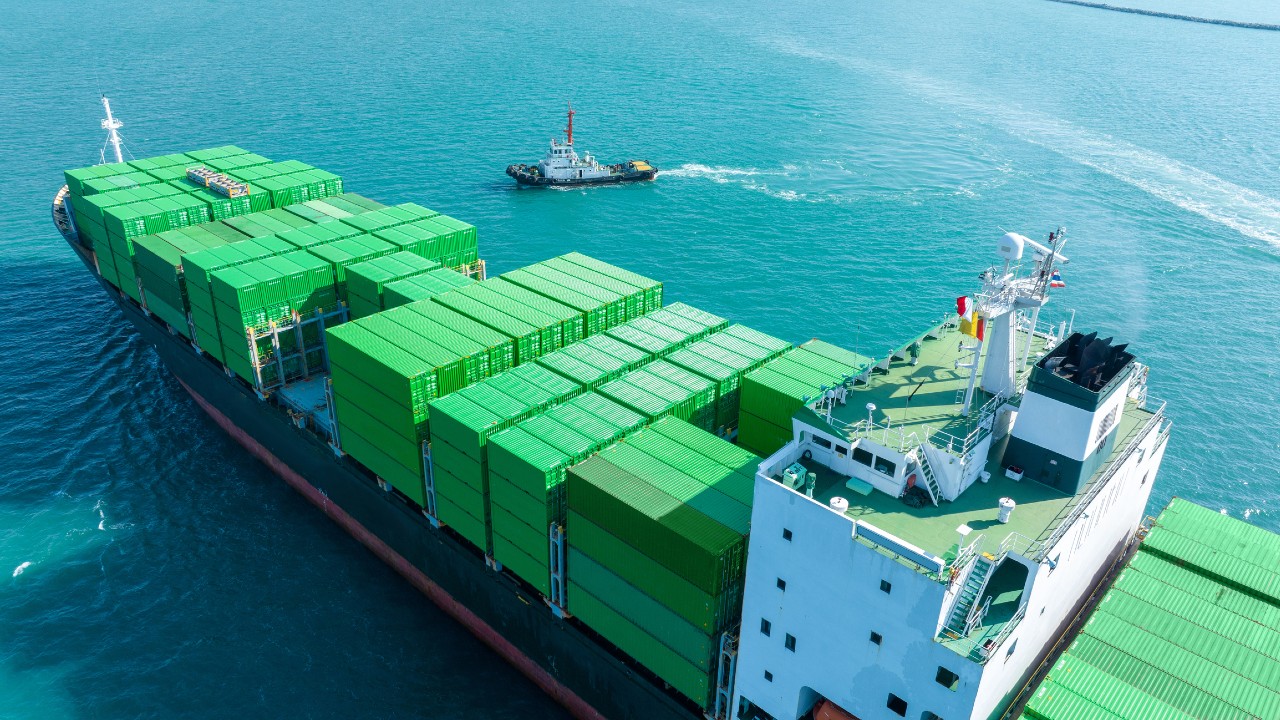The European Union’s new carbon intensity regulation FuelEU Maritime took effect on January 1, requiring shippers to report on the emissions of their operations and mitigate them through higher taxes, lowering fuel consumption, or switching to greener sources of fuel.
The measures are part of the EU’s plans to bring down overall shipping emissions by 80 per cent by 2050 against 2020 levels.
Shipowners must now report on the ‘well-to-wake’ emissions of their vessels, which measures total impact from fuel production to end use in a ship. While still legal, any emissions over the compliance limit are now charged at €2,400 (approximately US$2,470) per tonne of Very Low Sulphur Fuel Oil energy equivalent, around three times the price of bunker fuel.
The director of climate, environment and security at Danish Shipping, Nina Porst, hoped the new measures would help bring the price of greener fuels down.
Quoted in The Maritime Executive, she said: ‘I hope FuelEU Maritime can help drive both the demand for and production of green fuels for shipping. Currently, the lack of green fuels at competitive prices is the biggest challenge for the green transition of shipping. While the EU’s regulation of shipping emissions is undoubtedly a step in the right direction towards climate neutrality, it is crucial that EU countries also push for international rules within the IMO, applicable regardless of where ships operate.’

